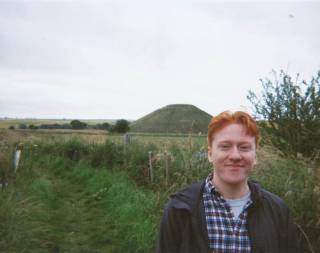PhD supervisor: Dr Hanna Hoelling and Professor Alison Wright
Working title for PhD: "‘A Place Called Away?’ Photography and the Limits of Environmental Justice at Agbogbloshie, 2008-2022
My research focuses on the ethics of photography at Agbogbloshie, a scrapyard and informal e-waste processing hub in Accra, Ghana. Since 2008, Agbogbloshie has become a subject of interest for photographers, pollution scientists, and environmental justice campaigners concerned with the growing global e-waste ‘crisis’. In conjunction with other research practices, photography has produced an image of Agbogbloshie as a ‘hellscape’ and has been mobilised in support of a top-down ‘clean up’ vision of environmental justice on-site… leading ultimately to the police and military-backed demolition of the area in July 2021, destroying the homes and businesses of thousands of workers in the process. Taking the case of Agbogbloshie as a point of departure, I problematise the uses and usefulness of photography for representing ‘slow violence’. Is it possible for photography to represent environmental ‘crisis zones’ without making a spectacle of or, worse still, exacerbating said crisis? I ultimately argue that for photography to support an ‘environmentalism of the poor’ at Agbogbloshie practices of photography in which workers exert greater control over the representations of their lives and livelihoods need to be centred over and above their representation by visiting art photographers and photojournalists. To make this argument, I draw on multiple photographic archives of Agbogbloshie, including “official” photography, activist photography, amateur photography, photovoice medical photography, and image data produced in support of scientific research.
Publications
Badcock, Jacob, ‘Photography After Discard Studies’, Burlington Contemporary, Issue 7, (November 2022).
Badcock, Jacob. ‘Extractivism: Ben Asamoah’s Sakawa (2018) and the Problem of e-Waste’, ed. Eray Çaylı, Journal of Visual Culture Magazine, (September 2022).
Badcock, Jacob, and Owusu-Nepaul, Jovan. ‘In the Wake of Colston: Wake Work After Woke Work’, Cambridge Journal of Law, Politics, and Art, Issue 1, (Summer 2021), pp.137-142.
Conference papers and presentations
- Badcock, Jacob, ‘Permanent Error: Photography, Colonial Land Relations, and the Problem of e-Waste in Ghana’, The Materials of Modernity, Newnham College, University of Cambridge, (16th July 2022).
- Badcock, Jacob. ‘The Problem of e-Waste in Ghana’, Past Imperfect: Conversations in Ecological Form, University College London, (17th November 2021).
- Badcock, Jacob, ‘Cannibalising Hegel’, Violence, Aesthetics, Anthropocenes: Colonialism, Racism, Extractivism, London School of Economics, (1st April 2021).
Teaching
- 2022-2023. University College London, Bachelor of Arts and Sciences (BASc), Senior Postgraduate Teaching Assistant, BASc2: ‘Art and Interdisciplinarity’.
- 2022-2023. Slade School of Fine Art, Senior Postgraduate Teaching Assistant, BFA2: ‘Wasting, Systems, Power: Archives, Collecting, Performance’.
- 2021-2022. Slade School of Fine Art, Postgraduate Teaching Assistant, BA2 & MA: ‘The “Invention” of African Art’.
Awards
My PhD is fully funded by the London Arts and Humanities Partnership (LAHP) Open Studentship Award.
 Close
Close


